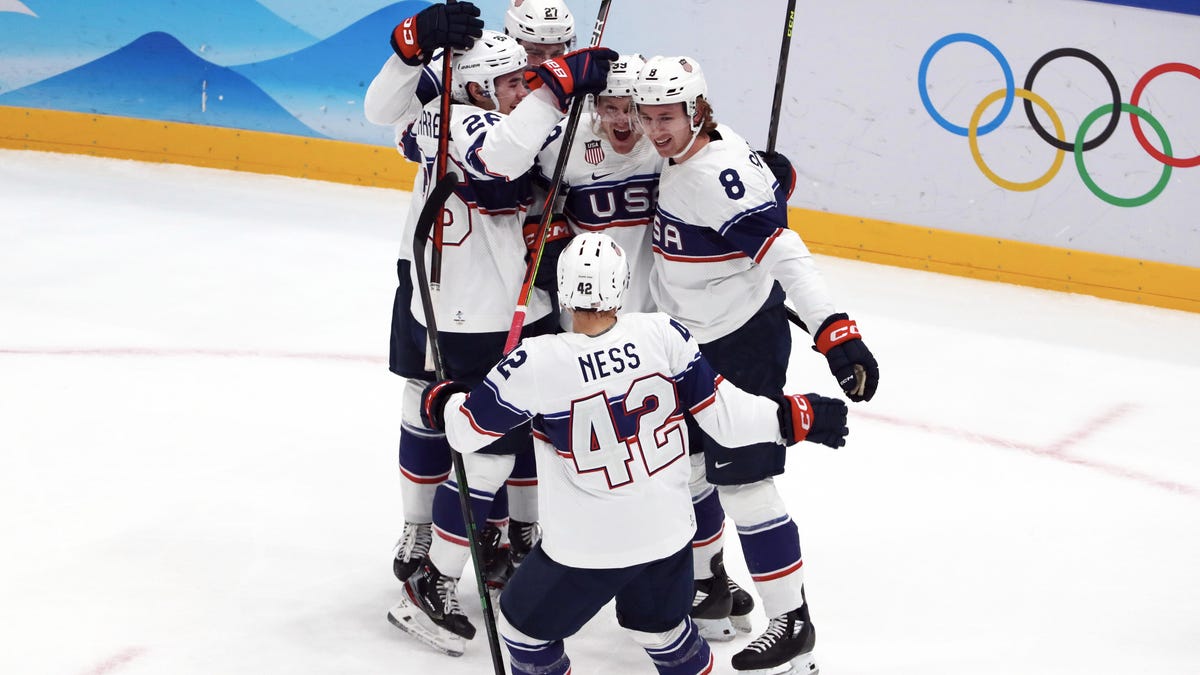This was not Miracle on Ice

Fact, an American team primarily made up of NCAA players took down a veteran Canadian team 4-2 in the preliminary round of the 2022 Winter Olympics in Beijing late Friday night.
Fiction, this was like the “Miracle on Ice.”
Any comparison to one of the greatest upsets in modern sports history is asinine. It took place at the Olympics and involved American youngsters taking down a more-experienced team from another country. That’s where the comparisons end.
Let’s not take everything away from this US squad. It gave up a goal 84 seconds into the game, a bad goal that starting goaltender Strauss Mann should’ve kept out, putting doubt into why American coach David Quinn made the switch away from Drew Commesso, who stopped all 29 shots he faced in the team’s tournament opener against China. The rout could’ve been on from there. Victories for the United States over Canada under the five Olympic rings are rare, the last coming in Vancouver on Feb. 21, 2010.
That streak of 4,374 days ended in part because of a quick response from the Americans, with captain Andy Miele tying the game with a quick backhand 70 seconds later, ending the only stretch of the game where the U.S. trailed. Were the Canadians vulnerable? Miele’s goal looked easy. As Canada’s goaltender Eddie Pasquale moved early, he committed a shot lower in the net, leaving a big chunk above his left shoulder open. That’s not a play you see in the NHL and if the league allowed its players to compete in Beijing, likely Canadian starting goaltender and Philadelphia Flyer Carter Hart would’ve made a better effort.
That’s the biggest difference in these Olympics. While the NHL didn’t allow its players to compete in the 1980 Lake Placid games either, the oldest American to win gold 42 years ago was 25, with then-captain Mike Eruzione being one of the eldest pair. Three US skaters were 23 years of age or older. They had no close equivalent to Justin Abdelkader, who turns 35 at the end of the month and lifted a Stanley Cup during his dozen years of NHL experience. The “Miracle on Ice” was also against the Soviet Union, the four-time defending Olympic champions and one of the most dominant teams ever assembled, in the medal round. No country lost more with the NHL’s separation from Beijing than Canada. Abdelkader has to be closer to the American’s overall cutoff line than 37-year-old Eric Staal.
If Hart, Connor McDavid, Sidney Crosby, and the deepest talent pool in world hockey came together for the Olympics, and the currently deployed USA roster beat them deeper in the tournament, then we’d have a sort-of legitimate comparison. Of course, we know the end result for those Americans. They won gold, the last time the country has done so. That Russian team was nearly unbeatable on the world stage, a streak extending from 1960, its last time not winning gold before the “Miracle on Ice.” Conveniently, it was also the last time the Winter Olympics were on American soil in Squaw Valley, California, near Lake Tahoe and the only other occasion where the US won a gold medal.
As a longtime Washington DC-area native, knowing Canada picked former Capitals Daniel Carr and Daniel Winnik to wear a red maple leaf in Beijing shows how far down the barrel the Canadians had to go to find the best available players. They’re not slouches, but neither has been an NHL mainstay since 2018, with Carr never really catching on in the world’s best professional league. This will be a fun, engaging tournament to watch. But let’s not pretend like Staal, the tournament’s biggest star, is elite. He’s currently the third-best Staal. His brothers, Marc Staal and Jordan Staal, would’ve both likely been considered with the NHL rosters at Canada’s disposal.
Another reason the “Miracle On Ice” tag can’t apply here is for off-rink reasons. Canada and the United States aren’t on the brink of war with each other. The USSR was in the middle of invading Afghanistan. There may be a global pandemic going on, but there wasn’t any diplomatic tension spilling onto the ice in Beijing. Where was the equivalent “Soviets: Get the puck out of Afghanistan” sign? Nonexistent due to crowd limitations.
What could be translated for the USA is the confidence of a victory over the International Ice Hockey Federation’s No. 1 team. These Americans are battle-tested, not together and not at this large of an international stage, but we’ll hear Matty Beniers’ and Miele’s names for years to come. Even as the youngest American, Beniers could be the best player in Beijing. The US winning gold won’t be a miracle. And that’s a credit to how far the sport has come in the country since Lake Placid.
For all the latest Sports News Click Here

